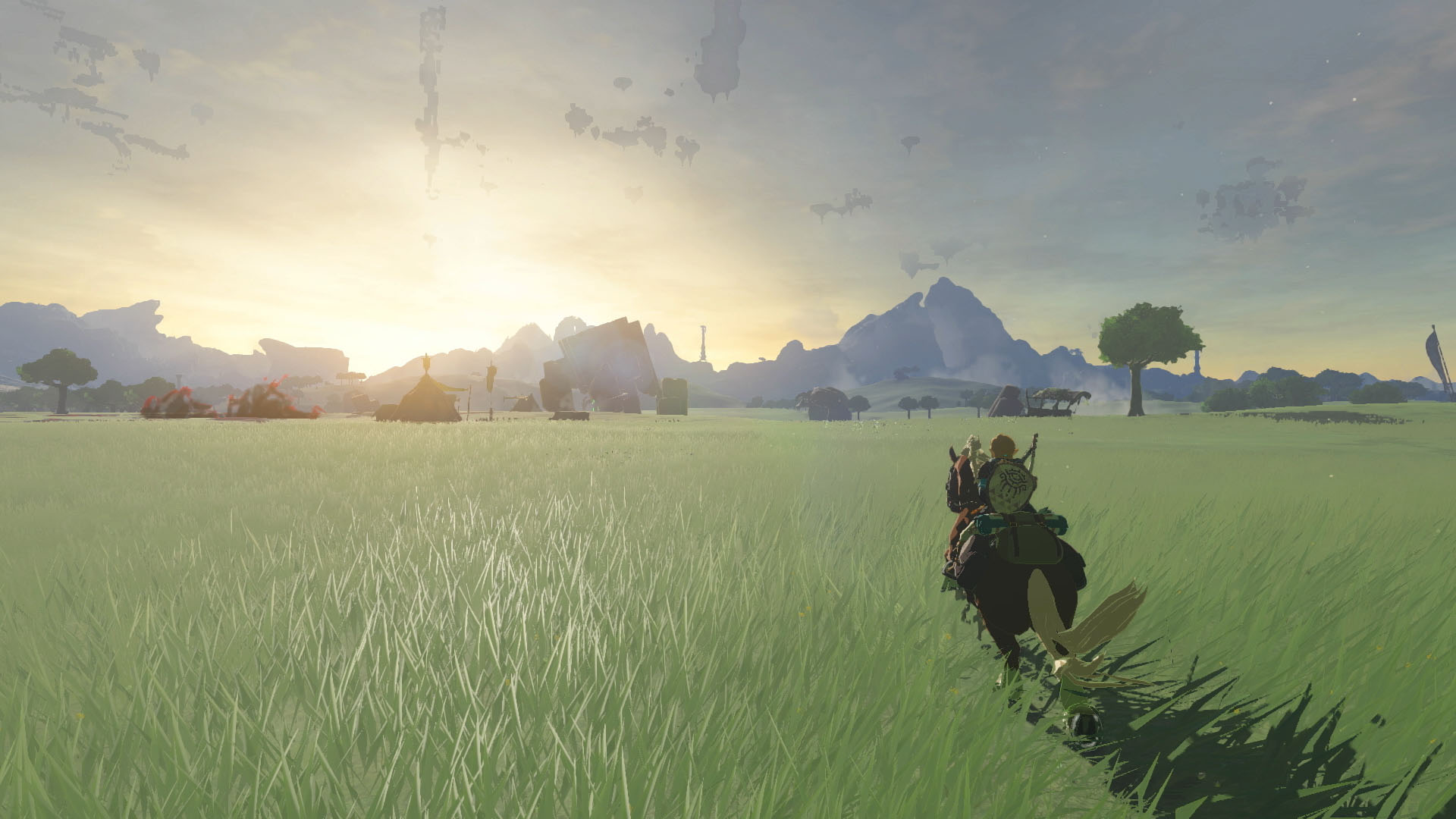Another Nintendo Direct, another preview of The Legend of Zelda: Tears of the Kingdom, the long-awaited sequel to Breath of the Wild which will finally (finally!) arrive on Nintendo Switch consoles in May. But aside from a few taunted enemies and some sort of magical car, the main surprise for fans was an openly mean voiceover, which appears to be the voice of nemesis Ganon himself.
Well, that part is up for debate: while it could be Calamity Ganon, the antagonist from the previous game, it could also be another iteration of a Zelda villain, like Demise (from Skyward Sword) or Vaati (from Minish Cap). We know that Zelda refers to the antagonist as “he”, but otherwise the jury is out on this, especially since her words are devoid of any identifying details:
“Rise…Rise, my servants. Sweep Hyrule, eliminate this kingdom and its allies. Leave no survivors!”
Some big bad guys have a big bad guy voice to go with them anyway, but I couldn’t help but be disappointed with what I heard.
Quiet time
(Image credit: Nintendo)
Zelda games have a long and storied history of silent or voiceless characters. Link himself is constantly mute, so much so that it’s become an inside joke throughout the games of the weird NPCs. In 2017’s Breath of the Wild, Zelda’s journal entry even makes this a key character trait: “With so much at stake and so many eyes on him, he feels it necessary to stay strong and bear any burden in silence. A feeling I know all too well…”
While Breath of the Wild had a bit more voice acting, mostly Zelda, in a notable twist on the character, the series has long stuck to on-screen text rather than painstakingly recorded dialogue, and I’d like to say that it’s better for him. In a world where countless RPGs feature talkative sidekicks or protagonists mumbling puzzle clues under their breath, Zelda is a AAA series that has largely bucked that trend.
Several games in recent memory confuse big budget investments (e.g. high caliber VO talent) with good gameplay. Forspoken’s awkward dialogue on PS5 has been teased extensively, while the tactical depth of Square Enix’s triangular strategy has been overshadowed by heaps of stilted talk, which can be muted in settings, thankfully, but seems to have been largely measured as a waste of development time by how rigid the result turned out to be. Bethesda attempted to improve the quality of its games in Fallout 4 by introducing the series’ first fully voiced protagonist, but this had the side effect of doubling the time it took for narrative encounters and took away some creative agency to players, who are now left with being told how they sounded to the world.
(Image credit: Nintendo)
“When you avoid the explanations and exposition of formal voice acting, the sound design becomes all the more important, and I would argue that fuels the surreal and mystical elements of Zelda games.”
I’m a big fan of Matthew Mercer, who might just be the one voicing the character in the trailer; it certainly looks like him, and he’s voiced enough fantasy villains to give Ganon, or an alternate villain, a fair chance. (Mercer also played Ganondorf in the 2009 Smash Bros. fan movie There Will Be Brawl.) But I can’t help but feel that this standard villain monologue is doing Tears of the Kingdom a disservice. Almost 20 years after the release of Twilight Princess, I still remember the squeals and squeals of Zant when you fight him in the Twilight Realm, or the sniffling of Ganon’s boar form in Hyrule Castle. And much of Wind Waker’s charm was in its expressive exclamations: the hips, growls, and screams of a little hero wandering the dark isles of Hyrule.
When you avoid the explanations and exposition of formal voice acting, sound design becomes all the more important, and I’d say that feeds into the surreal and mystical elements of Zelda games, where you face magic and monsters beyond any belief. rational understanding. Ganon looms over the series, as its main antagonist, and reducing him to a guy in a recording booth seems a bit small compared to his massive mythological status, and open declarations of power-hungry ambitions can seem doubly flat when they express themselves. strong. . I imagine the voice acting is still limited to the main characters (Zelda, Ganon, etc.), so we don’t see months of development time spent recording branching dialogue trees throughout the game (although that price of $70 could say the opposite).
I just hope the Tears of the Kingdom dev team hasn’t forgotten how terrifying invisible monsters or unheard-of villains can be, because that leaves space for our imaginations to enter. Either way, if we end up having a playable Zelda, I think I can pass it on.
Do you like getting lost in virtual worlds? review the best role playing games to do just that

